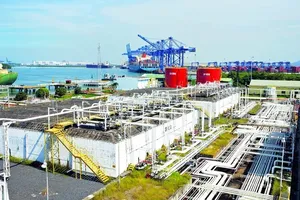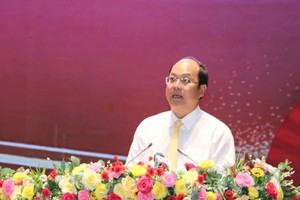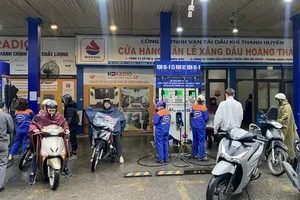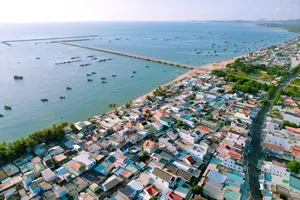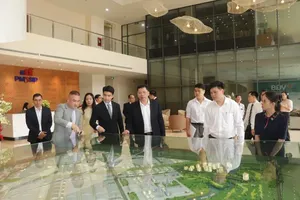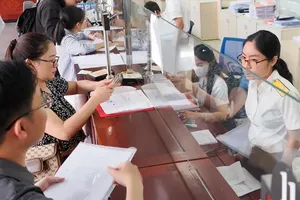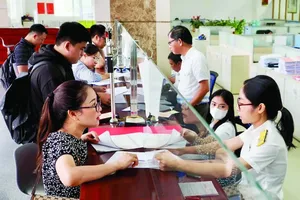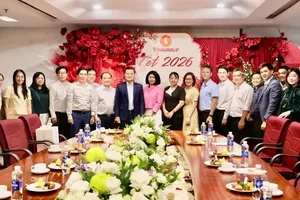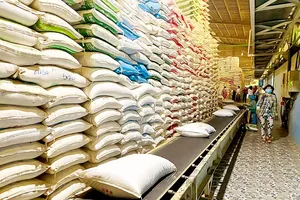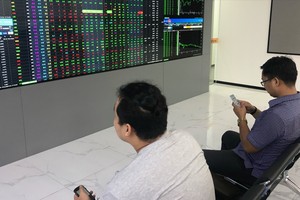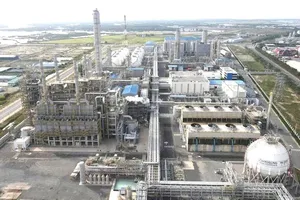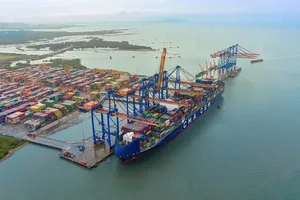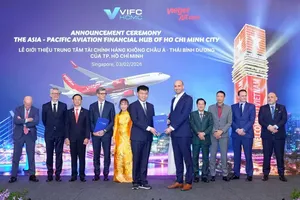ASEAN foreign ministers affirmed the resolve to complete remaining tasks towards the formation of the ASEAN Community at the end of this year at the 48th ASEAN Foreign Ministers' Meeting (AMM 48) which started in Kuala Lumpur, Malaysia yesterday.
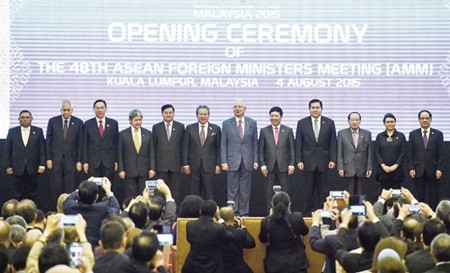
The ministers focused on reviewing the progress of the ASEAN Community roadmap an discussing ways to strengthen external relations and the central role of the grouping as well as regional and international issues of shared concern.
They emphasised the need to continue with efforts at both national and regional levels to implement set plans, while accelerating the building of the ASEAN Post 2015 Vision to be submitted to the 27th ASEAN Summit for approval.
The ministers agreed to push forward with deepening ties with ASEAN partners and considered a draft working plan on intensifying the central role of the bloc.
They underlined the importance of enhancing the bloc's solidarity, particularly in addressing issues relating to regional peace, stability, security and development.
The ministers pointed to complicated developments in the regional and world situations and worsening hot spots and non-traditional security challenges that require increased cooperation and dialogue efforts.
Addressing the meeting, Vietnamese Deputy Prime Minister and Foreign Minister Pham Binh Minh emphasised the need for ASEAN to encourage the parties involved to follow the common agreed-upon principles, particularly the principles on restraint, not using or threatening to use force, and handling all disputes by peaceful means on the basis of international law – especially the 1982 United Nations Convention on the Law of the Sea (UNCLOS), fully and effectively implementing the Declaration on the Conduct of Parties in the East Sea (DoC) – particularly Article 5, while working towards the formation of a Code of Conduct in the East Sea (CoC).
Minh said the establishment of the community is a strategic move to urgently enhance the group and regional connectivity to benefit peace, stability, development and the interests of peoples in the region.
He made it clear that both opportunities and challenges will face the group during the community building process, stressing that ASEAN should intensify its extensive connectivity and promote its central role in the region.
The East Sea issue
The ministers shared deep concerns over complicated developments in the sea, saying that recent actions have reduced trust and raised tensions, threatening peace, stability and security in the East Sea.
They emphasised the importance of ensuring peace, stability, maritime and aviation security, safety and freedom as well as of addressing disputes peacefully on the basis of international law, particularly the UNCLOS, exercising self-restraint, not using or threatening to use violence.
Southeast Asian diplomats called on China to address concerns over its controversial island-building drive during the regional security talks, after Beijing said the flashpoint issue was not up for discussion.
Foreign ministers have expressed their wish that senior officials of countries would increase consultation to conclude a Code of Conduct in the East Sea (COC) as soon as possible.
Malaysian Foreign Minister Anifah Aman said the ministers had discussed the issue and reiterated the importance of maintaining peace, security and stability as well as freedom of navigation and aviation in the East Sea, a life-line marine trade route that connects the region with the world.
He said the ministers stressed the need to implement fully and effectively the Declaration on the Conduct of Parties in the East Sea (DoC), and discussed how to address the erosion of trust among relevant parties following recent developments in the East Sea.
According to The Star, China reiterated its commitment to work with ASEAN countries to draw up and implement a binding code of conduct (CoC) for the East Sea but indicated that the process might take time.
China's Foreign Affairs Vice-Minister Liu Zhenmin described the recent China-ASEAN senior officials' meeting on the implementation of the Declaration on the Conduct of Parties in the East Sea (DoC) as successful, saying the discussions had now entered what he called a new stage
